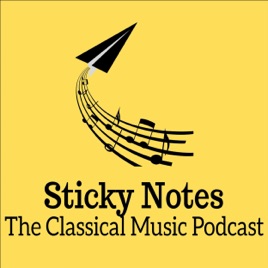
Advertise on podcast: Sticky Notes: The Classical Music Podcast
Rating
4.9 from
Country
This podcast has
225 episodes
Language
Publisher
Explicit
No
Date created
2017/03/14
Average duration
59 min.
Release period
13 days
Description
Sticky Notes is a classical music podcast for everyone, whether you are just getting interested in classical music for the first time, or if you've been listening to it and loving it all your life. Interviews with great artists, in depth looks at pieces in the repertoire, and both basic and deep dives into every era of music. Classical music is absolutely for everyone, so let's start listening! Note - Seasons 1-5 will be returning over the next year. They have been taken down in order to be re-recorded in improved sound quality!
Podcast episodes
Check latest episodes from Sticky Notes: The Classical Music Podcast podcast
Beethoven String Quartet, Op. 59, No. 1
2024/02/15
In 1806, the 36 year old Beethoven received a commission from the Russian ambassador in Vienna, Count Andreas Razumovsky. Razumovsky wanted a set of string quartets for what would soon be his house string quartet which included some of the finest players Vienna had to offer. As part of his commission, Razumovsky asked Beethoven to include a Russian theme in each one of the quartets. Beethoven obliged him in 2 of the quartets, and the Razumovsky quartets, Op. 59 1, 2, and 3, were born. 1806 was near the height of Beethoven’s astonishing so called Middle Period, where the scale of his music drastically expanded from his earlier works and he began writing in a so called heroic style, with much more brash and adventurous music. This all started in 1803 with his Eroica Symphony, but Beethoven did not limit his adventures and his expanding palate to his symphonies. Everything with Beethoven’s music was expanding, including his string quartets.
These middle quartets form part of the core of most string quartets repertoires. They are astonishing works in every regard, where Beethoven starts pushing limits we didn’t even, or maybe he didn’t even, know he had. From the expansive 59, 1, to the intensely felt and taut 59, 2, to the often fun loving 59, 3, Beethoven explores every facet of string quartet playing and brings that heroic and passionate new style to the genre of the string quartet. For today, we’re going to go through Op. 59, 1, a remarkably expansive and brilliant piece that explores every facet of string quartet playing, pushing quartets to their technical and emotional limits in ways that were absolutely shocking at the time and still unbelievably challenging today. If you come to this show for symphonies, that’s great, but for me and many other musicians, Beethoven’s string quartets are the greatest collection of pieces by any composer in any genre. I hope that today’s exploration will help convince you of that! Join us!
more
Ethel Smyth Serenade in D
2024/02/01
I’ve mentioned Ethel Smyth a few times in the past on this show. This is partly because of her music, and partly because she remains one of the most interesting people who ever lived. She was a composer of course, but she was also a conductor and an author, as well as a political activist. Specifically, she was a suffragette, fiercely advocating for the rights of women to vote in her home country of the UK. As a composer Smyth wrote dozens of works, all of which are starting to become better known as performers and administrators look to bring more music by female composers onto concert stages around the world. Smyth did not have it easy, constantly fighting for her place, battling conductors, other composers, and even her own father, all for the right to be a composer. Today, after I introduce you to a bit more of Smyth’s amazing biography, we’re going to focus on her first orchestral work, her Serenade in D Major. This is a piece that certainly doesn’t sound like a first orchestral piece, and it is full of all of the qualities that make Smyth’s music so enjoyable to listen to - lush warmth, humor, raucous intensity, and the quiet passion that runs through the music of so many great British composers. Smyth’s Serenade in D is starting to be performed more, and I’m really proud to be using my own recording of the piece for the show today, which I made with the Lausanne Chamber Orchestra in 2021. It is only the second professional recording of the piece, and the recording has just been released on Claves Records. So today, we’re going to go through this wonderful piece and also spend some more time in the wild and unpredictable world of Dame Ethel Smyth. Join us!
more
Dvorak Cello Concerto
2024/01/18
When you think of the genre of the concerto, you might be thinking of something like this: virtuoso fireworks, perhaps over romantic gestures designed simply to show the soloist off, and a rather pedestrian orchestral part, giving the soloist all of the spotlight while the conductor and orchestra are mere accompanists. Of course, this is a huge generalization and it isn’t true about many concertos. But of all of the concertos that I conduct regularly, and hear regularly, there is one that always stands out as the exception to the rule: Dvorak’s Cello Concerto. The Dvorak deserves every bit of popularity it has received over the years. In fact, you could argue that it is THE perfect concerto. It's enjoyable to play, perfectly written for the cello, enjoyable to listen to, and enjoyable to accompany for the orchestra. It has everything, which makes it all the more shocking to think that before Dvorak wrote the piece, he didn’t even think of the cello as a suitable instrument for a solo piece! But once convinced of the cello’s viability as a solo instrument, Dvorak gave everything to to the piece. We’ll talk all about the sometimes tragic history behind the writing of the concerto, the specific difficulties it places on the cellist, the conductor, and the orchestra, and of course, go through the piece in detail, pointing out all the different facets that result in the Dvorak being perhaps the greatest of all concertos. Join us!
Cellist: Miklos Perenyi
more
Bernstein: Symphonic Dances from Westside Story
2024/01/04
We're back! Welcome to Season 10!
Leonard Bernstein to his wife: "These days have flown so -- I don't sleep much; I work every -- literally every -- second (since I'm doing four jobs on this show -- composing, lyric-writing, orchestrating and rehearsing the cast). It's murder, but I'm excited. It may be something extraordinary. We're having our first run thru for PEOPLE on Friday -- Please may they dig it!." Westside Story ran for 732 performances, spawned a movie that won 11 Academy Awards, and is still a go to on every list of the greatest Broadway Musicals ever written. The collaboration between Leonard Bernstein, Stephen Sondheim, and Jerome Robbins was a revolution on par with the collaborations of Stravinsky, Diaghilev, and Nijinsky with the Rite of Spring. Simply put, no Broadway show had ever been so gritty, so tragic, and so raw. This was a musical, a comedy, a tragedy, a political statement, and most importantly, a stunningly revolutionary work of art by these collaborators. And today, I want to tell you about the music, and more specifically, the Symphonic Dances from Westside Story; an arrangement that Bernstein made with his colleague Sid Ramin 3 years after the show’s premiere. The Symphonic Dances brought Bernstein’s electric music from the theatre to the concert stage, and it’s stayed there ever since. So today, we’ll go through each number, talking about just what makes this music so great, and also about the show itself - its background, its production, and the issues that Bernstein, Laurents, Sondheim, and Robbins were trying to tackle, all through the eyes of a tale of woe about Juliet and her Romeo, or of course, Maria and Tony. Join us!
more
Dvorak Symphony No. 9, "From the New World" - LIVE with the Aalborg Symphony!
2023/11/16
I had the great joy to do my first ever live edition of Sticky Notes last month with the Aalborg Symphony in Denmark. For this concert, I chose a piece that is extremely close to my heart, Dvorak's New World Symphony. The story of the New World Symphony is a fascinating one. The symphony was the result of an extraordinary series of events, with Dvorak coming to America in 1892, meeting the great singer Harry Burleigh, and falling in love with a totally new, to him, genre of music: Black American and Native American folk music. Listening to Burleigh and other voices around America, Dvorak had discovered a new “American” sound for his music, and even though he would end up staying in the US for just three years, in that time he composed two of his most popular pieces, the American String Quartet, and the New World Symphony
But of course, the New World Symphony isn’t really an American piece. It is a piece written in America by a Czech composer, which means it embodies traits from both sides of the Atlantic. Moments of Black American influence elide into Czech Slavonic Dances and back again with incredible ease. All along the way, Dvorak infuses his highly traditional symphonic style with this "American" sound, a sound that enraptured the public from the very first time they heard it, and remains both incredibly popular and incredibly moving, today. Join myself and the Aalborg Symphony for this exploration of the symphony, followed by a complete performance. I'm extremely grateful to the Danish Radio for allowing me to use this performance for the show.
more
Lutoslawski Concerto for Orchestra
2023/11/09
Throughout the history of Western Classical Music, folk music has imprinted itself as an invaluable resource for composers from all over the world. In fact, it’s easier to make a list of composers who never used folk music in their compositions than it is to make a list of the composers who did! This tradition began long before the 20th century, but the work of composers like Bartok and a resurgence in the influence of nationalist music sparked a massive increase in composers using folk music throughout the 20th century and into the 21st. Bartok is thought of as the king of using folk music, as he was essentially the worlds first ethnomusicologist. But Stravinsky, who used dozens of uncredited folk tunes in his Rite of Spring, as well as Bernstein, Copland, Gershwin, Grainger, Vaughan Williams, Szymanowski, Dvorak, and so many others embraced folk music as an integral source for their music. This was in stark contrast to the second Viennese school composers like Schoenberg, Berg and Webern, and post World War II composers like Stockhausen, Boulez, and others who deliberately turned their backs on folk music. One composer who straddled both worlds during their lifetime was the Polish composer Witold Lutoslawski, a brilliant composer whose career started out in the folk music realm, though not entirely by choice, and ended up in music of aleatory, a kind of controlled chaos! One of his first major works, the Concerto for Orchestra is the topic for today’s show, and it is heavily influenced by folk music from start to finish. It is a piece also inspired and might even be a bit of an homage to the great Bela Bartok and his own Concerto for Orchestra, which was written just ten years earlier. Lutoslawski, if you’re not familiar with him, is one of those composers that once you learn about him, you can’t get enough of him. I’ll take you through this brilliant and utterly unique piece today from start to finish. Join us!
more
R. Schumann Piano Concerto
2023/11/02
In January of 1839, Clara Wieck, Robert's future wife, wrote to Robert, “Don’t take it amiss if I tell you that I’ve been seized by the desire to encourage you to write for orchestra. Your imagination and your spirit are too great for the weak piano.” Clara knew that she would have struck a nerve with Robert, whose history with the piano was full of trials and tribulations. Robert had trained as a pianist, but a 3 year period of reckless amounts of practicing as well as the exacerbating effects of experimental devices meant to strengthen his fingers had destroyed his ability to play professionally. But already from the age of 17, in 1827, Robert had considered writing a piano concerto, probably for himself to perform. He made 4 further attempts to write a concerto, but it seems, like so many things in Schumann’s life, that his marriage to Clara was the final inspiration that he needed to get over the hump. It made sense, as Clara Schumann was possibly the greatest pianist of her age, and someone who was ceaselessly devoted to promoting her husband’s works wherever she played. In 1841, one year after their marriage, Robert finished a one movement piano concerto in A minor, which he called a Phantasie. Clara reported adoring the piece, but no publisher was interested in the work of a still relatively unknown composer. They were especially uninterested in a on movement concerto, and so Robert knew he needed to “finish” the piece with two extra movements. It would take him 4 more years to finally tack on those extra movements, and the first performance would be given 4 years after that Phantasie had been written, of course with Clara as soloist. This concerto has remained popular practically ever since it was written, and there are so many reasons for it, from its arresting opening, to its abundant lyricism, to its constant interplay with the orchestra, something that Robert grappled with when writing this concerto. This piece is one that doesn’t have a story behind it, or any sort of narrative - it lives in the world as a sort of fantasy, constantly evolving in its beauty throughout. We’re going to talk about this piece in detail, from start to finish on this Patreon Sponsored Episode. Join us!
more
Brahms Violin Concerto
2023/10/26
Brahms’ violin concerto is one of the most difficult works for any violinist to tackle. It is as virtuosic as the hardest piece of Paganini as well as being as musically complex as a Brahms symphony. It takes most violinists years or even decades to feel comfortable with this piece, and many violinists consider it a kind of Mount Everest. Why? What makes this piece so complex, and yet so beautiful? What kind of choices do violinists make in their interpretations? For today, I'm not only going to tell you about this piece and how Brahms composed it, but I'm also going to compare 3 different recordings of the piece(Heifetz, Oistrakh, and Ferras) in order to show you the differences in interpretations between these 3 titanic violinists. We'll also talk about many of the topics we’ve covered before with Brahms; continuous development, gorgeous melodies, and that amazing Brahmsian quality of both respecting established forms while constantly subtly subverting them. Let's start the climb together and get to know this remarkable piece. Join us!
more
What Does Music Mean?
2023/10/19
Today is a bit of an unusual episode. Last month I was invited by the British Society of Aesthetics to address their annual conference. My task was to give a lecture on whatever topic I wanted, having to do with music. So, considering it was an Academic Philosophy conference, I chose the easiest and most straightforward topic possible - What Does Music Mean?
Obviously, this is a topic that has been interrogated from just about every different angle, and I certainly would never claim to have all the answers. But for my lecture, I decided to focus on how to find meaning in these amazing works from a performer's perspective. How do I study and learn these pieces so that I can find the meaning that I think is inside of them? What does history teach us about these pieces and can we use history to find meaning in these works? To try to answer these questions I chose three pieces to explore - Beethoven's Eroica Symphony, Barber's Adagio for Strings, and Shostakovich's 5th Symphony. After the lecture I realized it could easily be a podcast episode, so I've slightly changed a few things to make the lecture a bit more podcast-friendly. I hope you enjoy this one, and thanks to the British Society of Aesthetics for their invitation and their warm welcome!
more
William Grant Still Symphony No. 1., "Afro-American"
2023/10/12
On October 29th, 1931, The Rochester Philharmonic presented the world premiere of a new symphony by the composer William Grant Still. A symphonic premiere is always something to look out for in musical history, but this one had an even greater significance. The premiere of Wiliam Grant Still’s First Symphony, subtitled “Afro American,” was the first time a symphony written by a Black American composer was performed by a leading orchestra. William Grant Still was a man of many firsts, whether he was the first Black American conductor to conduct a major orchestra, the first to have an opera performed by a major company, the first Black American to conduct an orchestra in the South of the United States, and much more. Today we’re going to focus in on Grant Still’s first symphony, a piece that Grant Still had long thought about, conceptualized, and dreamed of. It was also a symphony wrapped up in the roiling currents of Black America at the time, with the Harlem Renaissance in full swing and Alain Locke’s tract The New Negro sparking discussion and debate all over the country. It was a symphony that attempted to do something no one had ever done before, that is, to marry together the genre of the Blues with that of symphonic music. At the time of its premiere and afterwards, it was quite a success, and until 1950, it was THE most performed symphony written by an American composer. After 1950, the symphony practically disappeared from concert stages, but due to the explosion of interest in Black American composers of the past and present, this brilliant symphony is making its way back into the repertoire of orchestras all over the world. The way that Grant Still constructed this meeting of two genres of music was ingenious and innovative from start to finish, and so today on the show we’ll explore all of the historical context of the symphony, what Grant Still was trying to do with his monumental new endeavor, and of course, all of the music itself. I'm also joined today by the great writer and linguist John McWhorter, who discusses the 4 Paul Laurence Dunbar poems Grant Still added to each movement as epigraphs, as well as their cultural context. Join us!
more
(Part 2) - The Music of World War II and the Holocaust with "Time's Echo" writer Jeremy Eichler
2023/10/05
This is another episode where I highly recommend listening to Part 1 from last week before listening to this episode! It was a great honor to speak with the critic and cultural historian Jeremy Eichler about his remarkable new book "Time's Echo." In today's episode, we speak about Richard Strauss' Metamorphosen, as well as the complicated and hotly debated questions about Strauss' activities during World War II. We also talk about Shostakovich and his 13th Symphony, entitled "Babi Yar," a piece of memorial for a place where no memorial had stood for decades. Finally, we speak about Benjamin Britten and his War Requiem. We talk about Britten's devout pacificism, about his visit to the Belsen Displaced Persons camp after World War II, and why his War Requiem seems to have more connection with World War I than with World War II. It was truly a joy to talk to Jeremy about all of these different great composers, as well as the memories they created with their works. Join us!
more
The Music of World War II and the Holocaust with "Time's Echo" writer Jeremy Eichler (Part 1)
2023/09/28
I had the great pleasure and honor this week(and next week) to speak with the author of the new book Time's Echo Jeremy Eichler. The book chronicles four composers and their varied reactions to World War II and the Holocaust, including Schoenberg, Strauss, Shostakovich, and Britten. This week we talked about the historical symbiosis between Germans and German Jews, the concept of Bildung, a central idea in German culture throughout the 19th and early 20th century, Mendelssohn's role in creating a sense of "German" music, Schoenberg's remarkable prescience about what lay in the future after the Nazis took power in Germany, his remarkable Survivor from Warsaw, the first major musical memorial to the Holocaust, and the almost hard to believe it's so wild story of the premiere of the piece. This is truly one of my favorite books about classical music that I've ever read, so I highly recommend picking it up. I hope you enjoy this interview as much as I did!
more
Podcast reviews
Read Sticky Notes: The Classical Music Podcast podcast reviews
gooder87
2024/02/23
Brilliant & Evocative
Thee Podcast for a classical immersion into music, the souls’s own speech. A must follow!
Lynsey Segal
2024/02/06
LOVE
Fantastic! Check it out!
MervAdrian
2024/02/03
A Precious Resource
Unfailingly interesting and engaging. Joshua weaves pure musicology with cultural relevance and personal insight. Every episode is a learning experien...
more
A pianist from Pennsylvania
2024/02/01
What a treasure
Of all the classical podcasts I listen to, this is without a doubt, the very best. The historical background information, the musical clips inserted t...
more
shrug dresses s ok hejaiejdbx
2024/01/26
Bravo
🙌😀😀😀😀😂🤣😄😅😁🎹🎹🎼🎺🪘🎻🪗🎻🎻🪗🎤🪗♟️🪈🪇🎺🎷🎷🪘🎹🎼🎲🎸🪗🎸♟️🪗🪈🪈🎻
all around Great Guy
2024/01/21
Bravo!
Well presented. Easy to follow and absorb knowledge. Pleasant and incredibly knowledgeable host. I have just recently discovered this presentation and...
more
Jonathan D. Neal
2024/01/21
Such a Joy
The host’s palpable passion for the music, his deep expertise, and his ability to communicate the essential truths and history of the works make this ...
more
hxu f
2024/01/05
A wonderful podcast
When I was a kid in Detroit in the 60’s and 70’s, I used to listen to Karl Haas’ Adventures in Good Music on WJR — this was my introduction to classic...
more
Minorprophet
2023/12/17
So much info!
When I was in college I used to listen to Karl Haas in NPR to learn more about classical music. This show is so awesome and so informative it is allow...
more
@musician
2023/12/09
Amazing
As a young musician and being in middle school, I normally do not get this much information. Listening to this podcast, I loved learning about new com...
more
Podcast sponsorship advertising
Start advertising on Sticky Notes: The Classical Music Podcast & sponsor relevant audience podcasts
You may also like these music Podcasts
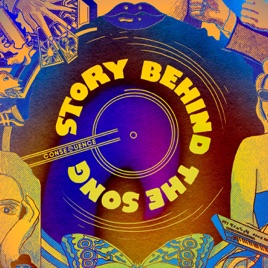
4.7
32
37
The Story Behind The Song
Consequence Podcast Network
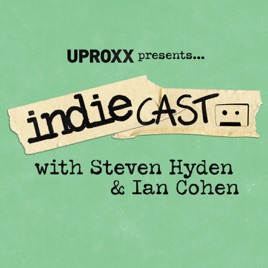
4.7
510
180
Indiecast
UPROXX
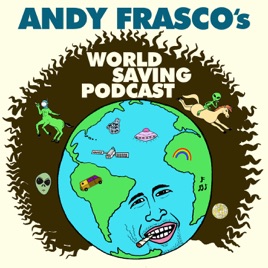
4.9
522
280
Andy Frasco's World Saving Podcast
Andy Frasco
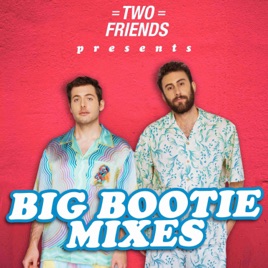
4.8
791
13
Two Friends BB Mixes
Two Friends BB Mixes
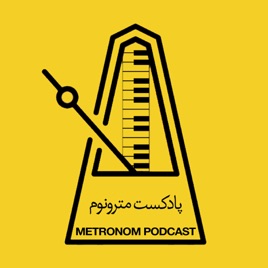
4.8
472
34
Metronom - مترونوم
metronom
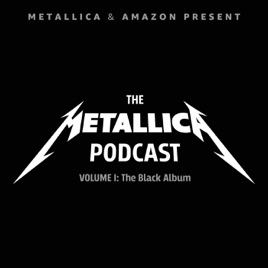
4.8
657
11
The Metallica Podcast: Volume 1 — The Black Album
Metallica & Amazon
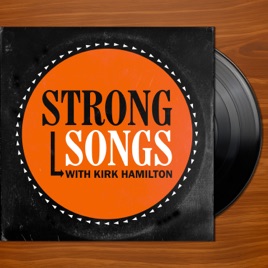
4.9
1741
149
Strong Songs
Kirk Hamilton
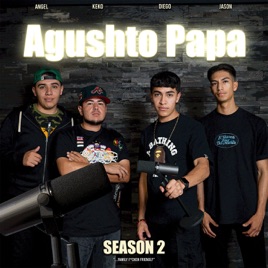
4.9
613
113
Agushto Papa Podcast
Agushto LLC

3.9
65
23
Rolling Stone's 500 Greatest Albums
Rolling Stone | Amazon Music
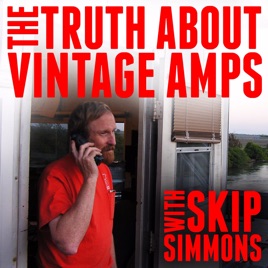
4.8
443
134
The Truth About Vintage Amps with Skip Simmons
The Fretboard Journal



